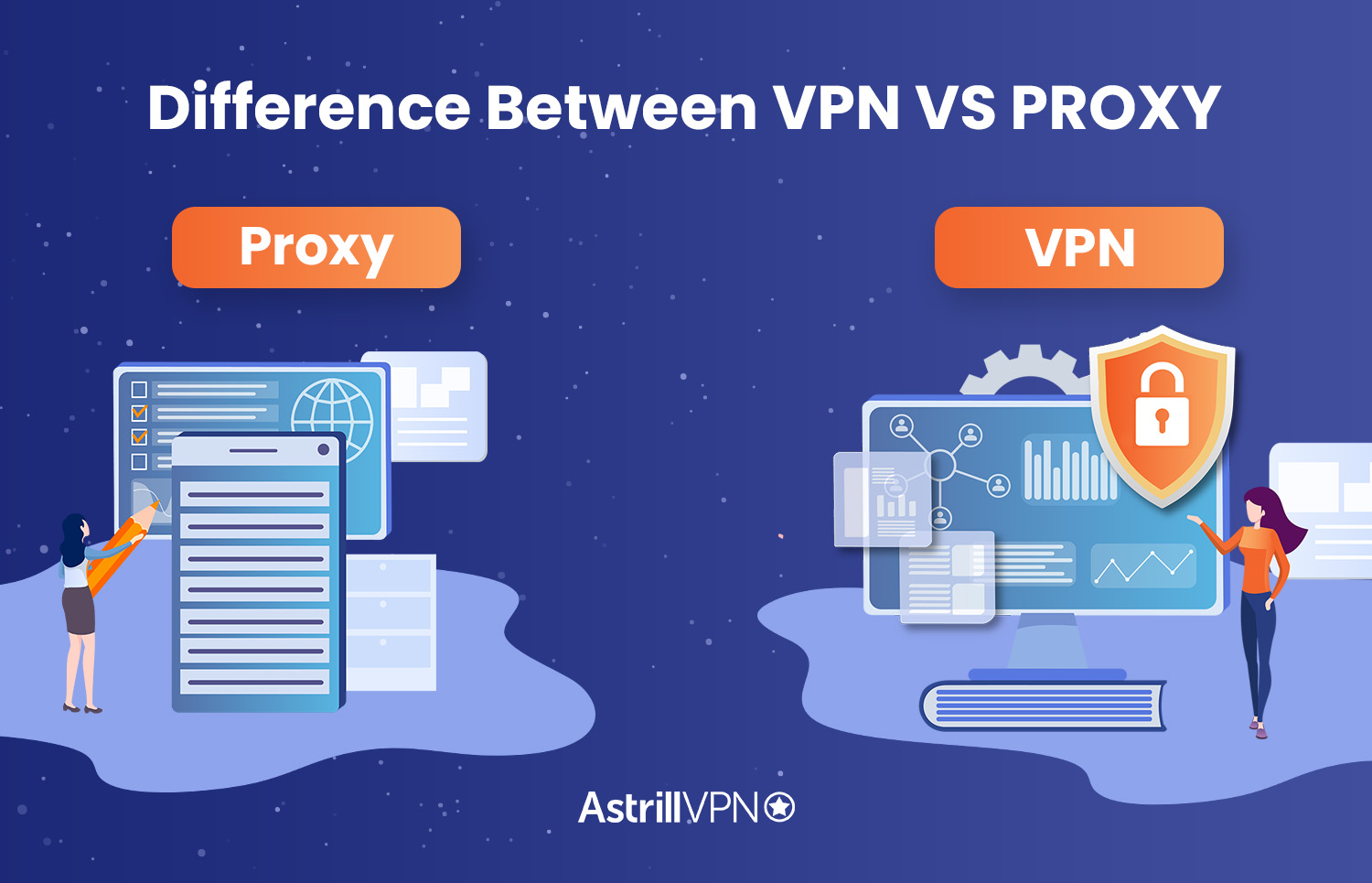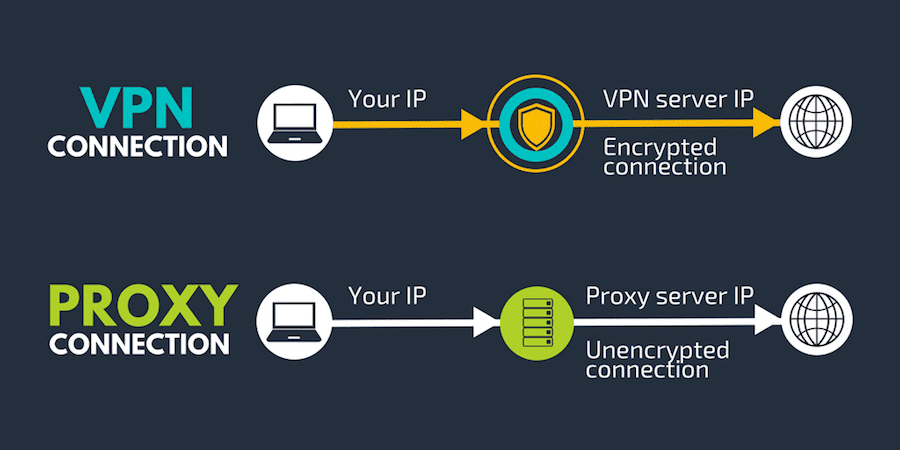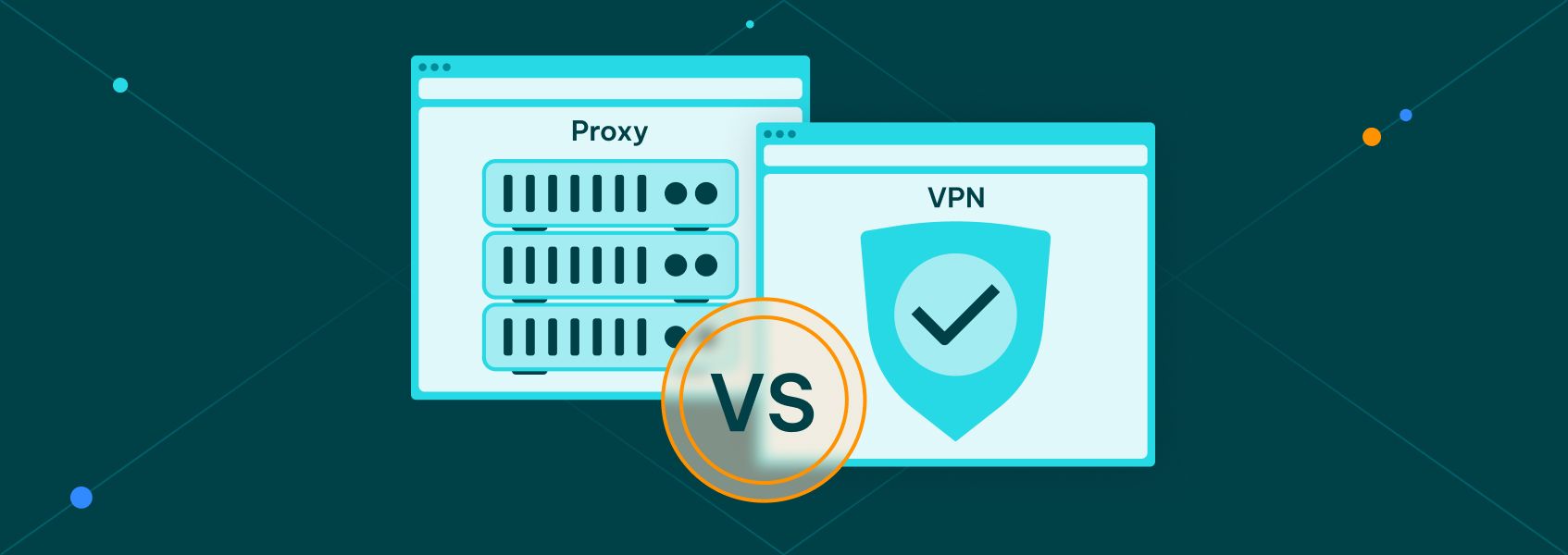Featured
Table of Contents
The Difference Between A Vpn And A Web Proxy
A proxy server will conceal your IP address from websites and services that you check out. Somebody may still identify your computer or gadget with fingerprinting, but that's unassociated to the proxy. Yes, both proxy servers and VPNs conceal your IP address from websites and services that you check out and utilize.
Protecting your web traffic isn't just a matter of accessing geo-blocked streaming content. It might also have deeper ramifications into the liberty to gather or share info that's not accessible in somebody's country. Do you utilize a VPN to improve your personal privacy and security when browsing the web?
Improve Short Article Save Article Like Article Improve Article Save Post Like Short article It means Virtual Private Network. It is a system of using encryption, authentication and stability defense so that we can use public network as private network. It replicate a personal network over public network. It permits users to from another location access a private network.

Personal privacy: VPN provides personal privacy by masking the user's identity and location, making it difficult for marketers and trackers to monitor user habits. Access to geo-restricted material: VPN enables users to gain access to material that is obstructed or restricted in their area by linking to a server in another place. Flexibility: VPN is versatile and can be utilized with a range of devices and running systems.
Proxy Vs. Vpn: 5 Differences You Need To Know
Slower speeds: VPN can cause slower web speeds due to the overhead related to encryption and decryption of information. Greater expense: Some VPN services need a membership cost, which can be a barrier to entry for some users. Threat of malware: Some complimentary VPN services might carry malware or other security threats, so it is necessary to pick a reputable provider.

Anonymity: Proxy offers anonymity by concealing the user's IP address, making it difficult for sites and marketers to track user behavior. Access to geo-restricted content: Proxy enables users to access material that is obstructed or restricted in their region by linking to a server in another place. Cost-effective: Proxy is generally totally free or inexpensive, making it accessible to the majority of users.
A proxy server is a middleman in between a user and web server. When internet activity travels through this remote server, a user's IP address is replaced with the IP offered by the proxy server. A proxy server can do a lot more than just hide your IP address. It might be configured to act as a firewall and an internet connection filter for obstructing malware injection attempts.Learn more aboutProxy Servers. A forward proxy service.

displays internal network traffic. This proxy is located at the edge of an internal network, between internal users and the internet. Forward proxies refer to defined administrative controls to either approve or deny connection requests in between users and the web. Forward proxies provide really standard IP address security and can not address complex user access requirements. All outgoing traffic is filtered through a reverse proxy which then regulates each application server request in accordance with policy management guidelines. Reverse proxiess can be used for: Protecting application connections through TCP three-way handshakes, Authorizing or obstructing user connection demands, Connecting users to an origin server A transparent proxy server works by clandestinely filtering online activity without notifying users. This seamless experience comes with some serious consequences. Transparent proxies are prospective
Proxy Vs. Vpn – The Definitive Guide
attack vectors for SYN-flood-denial-of-service attacks. It is necessary to comprehend that transparent proxies do not hide a user's identity from targeted web servers. A user's info, including their IP address, is supplied in each connection request header. Transparent proxies can be utilized for: Straining unwanted material as defined by proxy policies, Keeping an eye on traffic within a personal network, Forcing user authentication when joining a network Confidential proxies have practically the opposite function of transparent proxies. Because VPNs hide a user's IP address and offer end-to-end encryption, it's the ideal service for mitigating harmful snooping inside personal networks. When thinking about a more safe and secure internet searching experience, both proxy servers and VPNs are normally at the top of the suggestion list. Just VPN connections entirely encrypt network traffic. When SSL certificates are utilized, web traffic is susceptible to hacker interception through a type of cyberattack referred to as SSL stripping. That being stated, since
both VPNs and proxy servers conceal a user's IP address and for that reason the identity of their gadget, both choices might secure users from DDo, S attacks and Brute Force attacks.For the best level of sensitive information security when browsing the web, it's finest to avoid proxy servers (especially complimentary proxy servers )and settle for a VPN service by a trusted VPN service provider.Did you understand that nearly 88 %of Americans understand private networks? If you're part of this figure, then you're most likely attempting to choose what type of online security to utilize. Proxies and VPNs can both be utilized to hide your IP address and assistyou access online material securely. Keep reading to find out about the differences in between a proxy vs. VPN and which one might be best for your online security needs. Generally when you browse the web, your computer system links to a site directly and begins downloading the pages for you to check out. This procedure is easy anddirect. The proxy server sends out the demand to the target site, downloads the pertinent info and then passes it back to you. Why would you pick to use a proxy server? There are a number of factors: You desire to a website anonymously: All traffic appears to come from the proxy server, notyour computer system. Since VPNs are a paid service, VPN connections tend to be more reputable than proxy servers. With numerous users and an absence of infrastructure or support, proxy server connections can drop more regularly. Now it's time to choose which server is better for you: proxy or VPN. We've assembled all the benefits and drawbacks of each one listed below. An excellent VPN will need a paid membership for use. Only worth it if you use it typically: If you do not prepare to use your VPN every day, it's most likely much better to simply utilize a proxy server for when you require one-time security. Why you must select a proxy server: No payment required: You don't need to pay a membership cost for a proxyserver. Any other web traffic can still be seen by possible hackers or your internet company. If you're trying to find a security service for one-time use and don't care as much about who sees your web activity, a proxy server is most likely your finest option. If you're looking for a foolproof protection service that will keep all your traffic concealed, a VPN is your finest choice. A VPN is better than a proxy server for numerous reasons. VPNs secure all of your internet traffic, while a proxy server only encrypts the IP address of one web app or site. Another advantage of paid VPNs is that your data can't be offered to 3rd celebrations for advertising functions, whereas with a complimentary proxy server, there's a high chance your traffic data will be sold. Your VPN will encrypt your information, which a proxy server can't do. If you have a VPN, adding a proxy server is not necessary. Proxy servers are safe and helpful for concealing your IP address and safeguarding against hackers. However, your information might potentially be offered to third-party marketers if you utilize a proxy server. Begin with the Panda VPN now for more aid and suggestions about staying safe online, have a look at the useful suggestions in the Panda Security blog site.
Latest Posts
Best Vpns For Freelancers And Remote Workers: Protect ...
Best Remote Access Vpn In Usa To Work From Home
Best Android Vpn For 2022 - Digital Trends